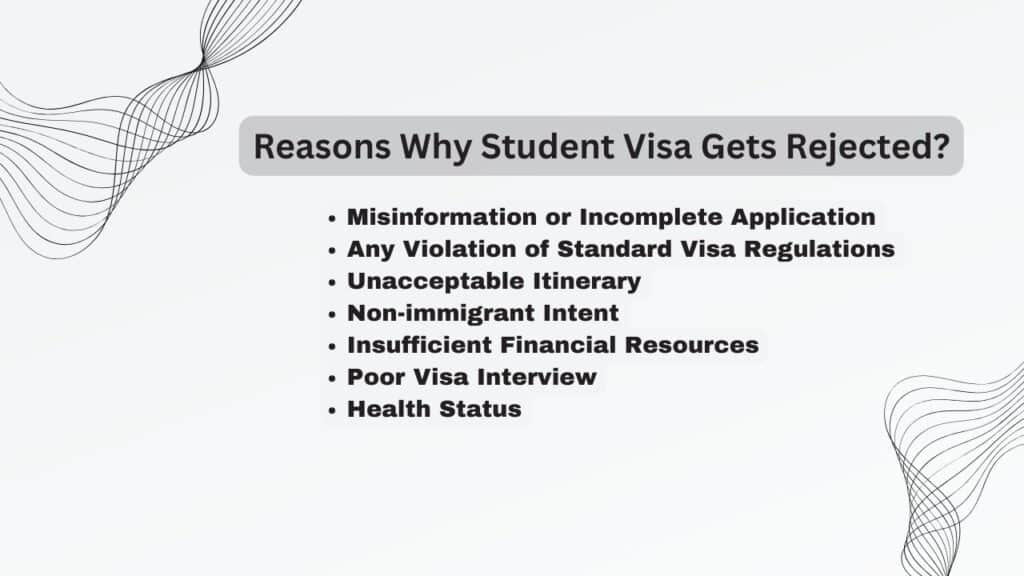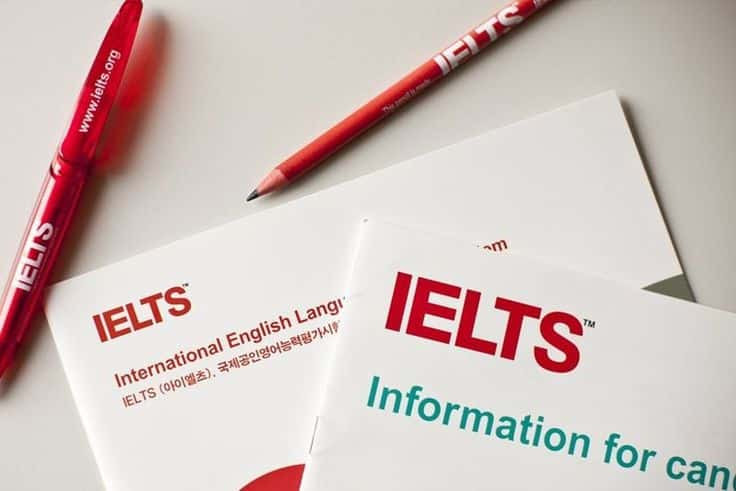What is purpose of study in japan
Do you know about the hidden information of Japan for study purposes?

Why study in Japan?

All the reasons that individuals wish to study in Japan.
- There are 50 QC-ranking universities in Japan.
- High quality of education.
- Everyone likes Japan for its culture and lifestyle.
- According to the Y-Axis report, the student visa success rate is 95%.
- Japan is known as a technologically advanced country. They are constantly inventing new technologies using their intelligence.
- Japan offers a high-quality education at a fraction of the cost compared to other countries, making it an attractive option for many students. Japan’s reputation as a technologically advanced country, constantly pushing the boundaries of innovation, makes it an exciting place for students to learn and grow. Japan is a clean and safe country. Its food is also healthy, and Japanese people seem fresh and young, thanks to its food and accommodation.
Benefits of studying in Japan for Bangladeshi students

There are many advantages to studying in Japan, and knowing them will surprise you. Take advantage of studying in Japan.
- Japan has become known for successful business people, scholars, and researchers.
- Japan is the region with the most Nobel laureates in Asia, 6th globally.
- Japan is the best manufacturer in terms of technology. There are internships and job opportunities after graduation.
- They are known for their friendly behavior and sensitivity.
- After graduation, you can work in Japan.
- They have some registered places which play a role in their job application.
- In Japan, international students can work part-time jobs, which gives them financial support.
Popular universities in Japan
| NAME | QS World University ranking | INTERNATIONAL STUDENT POPULATION |
| University of Tokyo | 1 | 4,283 |
| Kyoto University | 2 | 2,715 |
| Tokyo Institute of Technology | 3 | 1,700 |
| Osaka University | 4 | 2,611 |
| Tohoku University | 5 | 1,780 |

For an Inquiry about Japan: (880) 1930-350350
English proficiency test scores required
If you want to go to Japan for an English Proficiency Test, you must get minimum marks per their requirement. According to the AZED News report
IELTS: minimum score 6.0
TOEFL: minimum score 80
It depends on Japanese universities.

For Any Inquery: (880) 1977-706066
By submitting my data I agree to be contacted
- Sakura Japanese Language Academy: located in Sylhet, Sakura Japanese Language Academy offers Japanese language n5 and n4 courses for those people who want to go to Japan for higher education.
Cultural immersion and language learning

Traditional Culture
To live in a country, we need to know about that country’s culture. The Japanese have been holding on to their culture for centuries. They constantly observe their culture with devotion. They follow their every culture with heart. The traditional cultures of Japan are:
- Tea ceremony
- Calligraphy
- Flower arrangement
- Origami
- Drums
- The country’s festivals are cherry blossom viewing and summer fireworks.
Studying Japanese culture is not just an academic pursuit; it’s about actively participating in and mastering various aspects. This active engagement is not only crucial for gaining a deep understanding and appreciation of the richness of Japanese culture, but also enjoyable.
Language learning
The Japanese value their language above all else. If you can’t speak English well, you can survive in Japan if you can speak Japanese very well. More than 130 million people in Japan speak Japanese. Among them are international students. If you know the Japanese language, you will quickly get a good job opportunity after completing your studies in Japan. So, master the Japanese language before studying in Japan or during your studies.
Scholarship and financial support for international students

- MEXT scholarship.
- Join the Japan/World Bank Graduation Scholarship program.
- Yokohama National University program for International students.
- Asian Development Bank Japan Scholarship Program
- JASSO Scholarship
MEXT Scholarship
MEXT is the most popular scholarship. The Japanese government has awarded this scholarship to students from over 160 nations worldwide since 1954. They provide many facilities for the students. It provides financial assistance towards tuition fees, living expenses, and study-related expenses. It is a competitive scholarship. No student will feel any financial stress through this scholarship.
Visa checklist
You will need the following documents to obtain a Japan visa:
- Genuine passport and photocopied
- The eligibility certificate
- Two photos (4 inch x 3 inch)
- Previous academic slip
- Airline booking slip
- (6 months) Income Reports
- Evidence of scholarship
- Letter of inquiry
- Cover letter written
So, make sure you have all these documents before proceeding with visa processing. If they are not there, then collect them.
Life as an International Student in Japan
Japanese students do better in their studies because every subject is taught practically in Japan. International students can also benefit from studying at Japanese universities. No matter what subject you study, including Engineering, Pharmacy, or Medicine, the teachers will teach you to master each subject very well. If you can master each task by properly evaluating their research and innovative work, your chances of getting a job double.
Japan’s reputation as a top education destination is on the rise, with its universities gaining increasing recognition. These institutions play a pivotal role in the development of international students, offering them a wealth of opportunities. Upon completing their higher education, students can look forward to high-status job opportunities in Japan.
Conclusion
Deciding to study in Japan can be a landmark decision for you. Everyone can dream, but only a few can make it come true. And those who can make it come true are the ones who succeed. Success never comes by itself. Success requires hard work. So you also work hard. You will find success on your own. And studying in a country like Japan is beyond imagination.
What is purpose of study in japan Read More »
Which IELTS is required for a student’s visa
Which IELTS is required for a student's visa?

To go abroad and continue studying there, you need a permit, which is called a student visa or F1 visa. For this reason, you need to achieve a standard IELTS Academic score to get the highly desired F1 or student visa.
According to the Daily Star’s report of August 2023, the number of Bangladeshi students venturing abroad for higher education has surged, tripling from 2008 to 2023. This trend highlights the growing aspiration of Bangladeshi students to study in their dream universities, but also the pressing need for more comprehensive guidance.
Most students are from the Bengali curriculum. As you shift your university curriculum from Bengali to English, you must focus on improving your English Language Skills to adjust to the new learning environment.
So, if you’re ready for an exciting exploration of IELTS and the Student visa, stay tuned and turn your vision into reality.
Why IELTS For Bangladeshi Students?

IELTS, a prerequisite for international students, is a gateway to fruitful communication in diverse cultural settings. Demonstrating your English language proficiency through IELTS can open doors to foreign colleges and embark on long-term studies in an English-medium environment.
Among the prominent types of IELTS, the universities ask applicants to have a standard band score on the IELTS Academic Test. The band score in IELTS depicts how good a student’s English language proficiency is. The better the score, the better the institution the students can go.
The necessity of IELTS in getting a student visa

Convince the Visa interviewer that you can adapt

The IELTS test is now more than a personal English qualification to attain a diverse cultural community. It has become a requirement for many. A highly skilled person in English usage can easily present their innovative approach and practical ideas.
So, a good band score is a good qualification for showing universities that want to assess one’s intention, dedication, experience, and track record in improving communication skills. It is common practice to ask international students to gain expertise in the territorial language, and English is no exception.
But does an applicant with band 8.5 or rarely 9.0 always get into the Ivy Leagues or the top-tier universities of the USA, Canada, and UK, or is it just a myth that IELTS ensures Full-ride scholarships, a Student visa, and a resident permit? The truth is, the competition is fierce, and a high IELTS score can give you an edge.
No. It is just a qualification to add to the application. Colleges prefer students with a standard IELTS score but do not guarantee admission.
Does IELTS Academics alone bring the Student Visa?

- Getting a student visa is stressful for a young aspirant who wants to pursue his studies in dream colleges and universities. Getting prepared includes sitting for the IELTS test and standardized exams (AP, DSAT), collecting recommendation letters, applying through a portal, and so on.
- The student waits a few weeks for the college’s decision. If it’s a yes, then Congratulations. This is almost done.
- However, this visa interview could be more precise, requiring several documents and a thorough assessment. IELTS band 6.0 is the minimum for most countries to go to study. If not, the medium of instruction is considered.
- Whether it is an IELTS certificate with a band of 8.5 or a TOEFL score with high remarks, the visa officer may reject the visa application if the interviewer finds loopholes or misinformation in the applicant’s documents.
- The interviewers emphasize the college ranks, meaning that the students applying to less-ranked universities in the first place. So, this qualification is mandatory, but the visa needs to be confirmed.
IELTS Requirement for Undergraduates and Postgraduates:

For any educational purpose, whether it is a novice undergraduate, an experienced postgraduate aspirant, or a doctoral degree seeker, having a standard IELTS score is one of the most crucial criteria for admission. The band score is needed when the offer letter coincides with the visa interviews.
Below are some of the IELTS band requirements and criteria for some of the most preferable study destinations:
USA:
Student visas in the USA are often considered the most complex visa application process for international aspirants. Applicants need to prepare a large number of documents.
After submitting the Common Application and receiving the offer letter, the students need to be prepared with IELTS documents. US colleges place a strong emphasis on English language proficiency, with a minimum score of 6 to 6.5 being preferred. An overall band of 7 is considered a good match for the top-ranked colleges.
Canada:
Canadian Universities are unique in their curriculum. Unlike US colleges, they do not have a common application platform, so students must apply individually to the respective portals and visit university sites.
IELTS is a huge priority. They prefer undergraduates to achieve an overall 6.5. Although postgraduate programs require a comparatively higher score, the opportunity is huge in Canada.
Australia:
Australia values people highly for their English skills and Academic Track record. These are highly prioritized as Australian institutions give less emphasis on the extracurricular sessions of students seeking admissions. Students are encouraged to score at least 6 for undergraduates and 6.5 for postgraduates.
Conclusion
IELTS Academics is only a tool for getting accepted into Dream Universities and a student visa to stay in foreign countries. Still, the candidate himself is the weapon to crack it. The arrangement and sequencing of the documents, crafting the essay beautifully, and submitting financial aid documents all help an applicant stand out. A band score in IELTS Academics is more than just a number. It symbolizes your ability to connect and communicate with people globally or to run an organization effectively. In essence, IELTS Academics is a powerful tool for demonstrating your English proficiency and showcasing how you can contribute to the international community through your communication skills.
Which IELTS is required for a student’s visa Read More »
Why Student Visa Gets Rejected
Why Student Visa Gets Rejected - Common Reasons and the Follow-ups

What Does Visa Rejection Mean?

A visa rejection or refusal may occur when the authority of the associated country finds anything against its national or moral code in your application. When a visa gets rejected, the applicant becomes ineligible to enter a country as either his application requires further information or documentation or his application fails to satisfy all the conditions of the authority country. A further application with proper and sufficient documentation will be the only solution in case of a visa rejection. This additional effort will elongate the overall procedure and make the student face extra hassle. If you are in a hurry, it will be best to deal with your visa application with the ultimate caution the first time.
Most Prevalent Reasons Why Student Visa Gets Rejected

A visa can get rejected for various reasons. From eligibility problems to even simply making a spelling mistake, the reasons for a visa rejection can be minor or severe.
Below are the most common reasons why a student visa gets rejected:
Misinformation or Incomplete Application

It’s of utmost importance that students take full responsibility for their visa application process. By meticulously providing all the information and completing every requirement, they are in control of their application’s success. The key is to leave no section empty and ensure all obligatory documents are included. This thoroughness significantly reduces the risk of visa rejection, giving students a sense of control over their application.
For any unavailable document, students must check for alternatives. By no means should they submit a fake document
Any Violation of Standard Visa Regulations

Every applicant must abide by the standard rules set by the associated immigration department. Most of these rules concern the documents mandatory for visa applications. These rules also provide specific guidelines describing the processes of an ideal visa application and the types of documents to attach.
Students should carefully read all the rules and regulations from the embassy website. They should also get themselves familiar with the provisions of visiting a country.

For Any Inquery: (880) 1977-706066
By submitting my data I agree to be contacted

- Sakura Japanese Language Academy: located in Sylhet, Sakura Japanese Language Academy offers Japanese language n5 and n4 courses for those people who want to go to Japan for higher education.
Unacceptable Itinerary
Students must submit a complete itinerary that includes:
- Specific plans and times for visiting the country
- Documents of flight and transport
- Receipt or documents of accommodation
Non-immigrant Intent

Insufficient Financial Resources

While most universities ask for and check documents demonstrating an applicant’s financial abilities, a candidate must show proof of his financial freedom during the visa application process. Any finance-related documents, like bank slips, scholarship details, additional funding, etc., must be submitted. Failure to provide these documents will result in a visa rejection.
Poor Visa Interview

The perception of the consular office plays a vital role as they interpret and analyze a student’s answers in the interview. The officer will notice a candidate’s behavior, virtues, and qualities. The answers a student gives will go through evaluation along with their body language and tone. Any rough behavior or rudeness will be fatal for the candidate. Any harm or doubtful implication in a student’s intent will also go against them.
Health Status
If he has to cure remaining infectious diseases or has an ongoing vaccination program record, reject his student visa.

Application Time

What to Do After a Visa Refusal
Conclusion
A visa rejection is heartbreaking. However, like any difficult situation, only a proper after-measure can solve the issue. Before submitting the visa application, learning all the rules and regulations about why student visas get rejected will undoubtedly help. Checking and rechecking the documents with the requirement list will also help. However, the best step will be to get guidance from a veteran visa consultant service that guarantees success.
Why Student Visa Gets Rejected Read More »
what IELTS score is required for Japan
What IELTS Score is Required for Studying or Working in Japan?

Do you want to go to a country of natural beauty like Japan for higher education and a job? Japan is prospering in terms of its educational system and employment, like other countries. But the country is very advanced in terms of education. The inflow of international students to Japan is increasing daily.
If you want to go to Japan for study and work purposes, you can. Before you go, you need to prove your English proficiency test. You can put IELTS on your choices for your English proficiency test. How much is the IELTS score required in Japan? How do you prepare yourself for the IELTS test? In detail here we will discuss all these questions. Along with this, at the briefing, we will share some other unknown information.
Why is the IELTS score important for studying or working in Japan

A good score is required to study or work in Japan. If your score is good, you can quickly climb to the top of your success. Many students from South Asian countries go to Japan for graduate studies every year. You can directly apply to various universities in Japan after completing the high school examination. Universities in Japan offer engineering, business, diploma, undergraduate, postgraduate, and Ph.D. Japanese companies require English skills to work internationally. Through IELTS, we can improve our effective communication in English.
Understanding the different types of IELTS exams

You can find the best universities in Japan that suit your needs through IELTS. You must take the IELTS exam depending on your study and work. There are two types of IELTS for reading and work: IELTS Academic and IELTS General Training. Taking the Academic IELTS for research or a job in Japan is advised. One or more take general modules in the field of organization or job. In that case, you must know their requirements.
What is the minimum IELTS score required to study in Japan?

Studying in Japan would help if you had an IELTS score of 6.0. It differs depending on the institution and the subject. There are sometimes specific test requirements for every portion of the IELTS exam. You have to fulfill their requirements. You can select a university according to your points. You should always aim to get maximum marks, and you will be safe.
What is the minimum IELTS score required to work in Japan?

IELTS test scores for work purposes in Japan may vary depending on the job. In some cases, they may not specify. In that case, you must contact the company or organization you want to work with for English language requirements.

For Any Inquery: (880) 1977-706066
By submitting my data I agree to be contacted
- Sakura Japanese Language Academy: located in Sylhet, Sakura Japanese Language Academy offers Japanese language n5 and n4 courses for those people who want to go to Japan for higher education.
Which scholarship to go to Japan?

In Japan, scholarships contribute to the development of the wider world. There are many scholarship systems in Japan, among which MEXT is the most popular and has many benefits. If you want to go for higher education in Japan, you must take the MEXT scholarship. IELTS will help you to get the scholarship quickly.
How to prepare for the IELTS exam

- Understanding the exam pattern is a universal key to success in all exams, including IELTS. Please familiarize yourself with it to enhance your preparation. The IELTS exam has a specific time limit. Familiarize yourself with that time frame. The better your exam speed, the more successful you will undoubtedly be.
- Review your position through a mock test. Identify any areas that need improvement.
- Do everything in English, including reading English magazines, online magazines, vlogs, etc. Speak English with friends and others who speak English.
Basic mistakes to prevent in the IELTS exam

- Pay meticulous attention to spelling to avoid common mistakes in IELTS. Spelling accuracy is a crucial factor in your IELTS score. Avoid guessing and use synonyms when necessary to enhance your vocabulary building.
- Increase your writing speed according to the exact time required for each question. Also, give a small question first. Doing so will give you a little more time to answer the big questions.
- They are using more transition words. Transitional words make sentences smoother. For example, however, and, besides, actually using such words.
- It would help to focus on each stage, especially listening and speaking. Never apply rote learning.
- Only include the necessary information to make the question longer.
Additional language proficiency requirements in Japan

Conclusion
The IELTS exam requires tireless effort and proper guidelines. Remember that the following days will be the key to fulfilling your dreams once you are successful. You will always be thinking about achieving a higher IELTS score than required. By doing this, you can survive in today’s competitive market. Start your IELTS journey today without delay.
what IELTS score is required for Japan Read More »
can i study in japan after 12th
Open the Doors to Education to Studying in Japan After 12th Grade

The education system in Japan

Japan’s education system is one of the best in the world. In it, students learn behavior, ethics, socialization, trust, morals, character building, and respect.
Japan’s class system:
- Nursery (0-5 years old)
- Kindergarten (4-5 year old)
- Elementary school (6-11 year old)
- Junior high school ( 12-14 year old)
- High school (15-17 years old)
- University (18-21 year old)
Below is the information about the education system in Japan:
- Japan schools don’t have janitors
- Student art trained to self-defense
- Zero delays in attending school on time
- Students and teachers still work even during school vacations.
- There are no exams for the first ten years of work on manners
such as;
- April 1- July 20
- September 1- December 26
- January 7-March 25
Choosing the right university in Japan

Japan is one of the world’s most developed countries and has a long history of education. In Japan, there are more private institutions than national ones, as well as public universities and junior colleges. Undergraduate-level universities include 86 national, 101 public, and 620 private. Junior colleges are more private than public: 14 public and 295 private.When selecting a university in Japan, it is essential to consider various factors, such as the institution’s reputation. Identify your academic interests and career goals, find universities related to your areas of interest, and consider factors such as faculty expertise, research opportunities, and alumni networks, as these can significantly influence your educational experience and prospects.
Application process for studying in Japan

The application process for studying in Japan may vary depending on your chosen university and program. Although the specifics vary, most applications follow these general steps.
- Application form (duly filled up)
- Passport and One photo (2 inch X 1.4 inch)
- Certificate of Eligibility (C.O.E.)
- Admission certificate from a Japanese language school in Japan
- Receipt for admission/tuition fee from Japanese language school)
- Certificate of Japanese Language Proficiency Test N1-N5 (if you have one)
- Japan Language certificate from language schools in Bangladesh
- student minimum Academic Certificate, Registration Card, Mark Sheet of S.S.C. and H.S.C.
- Valid airline booking slip
- Bank Statement for six months from a financial supporter.
- Tax certificate & paid amount receipt for three years from a financial supporter.
- Family tree with necessary passport copy /N.I.D. card/ Nikahnama to prove the relationship with financial supporter ( if the supporter is not your parents)

For an Inquiry about Japan: (880) 1930-350350
Part-time work opportunities for international students

- Restaurant
- Language teacher
- Factory worker
- Sales
- Cleaning
- Delivery
- Teaching or research assistant
Conclusion and next steps
Remember to immerse yourself in the rich Japanese culture, embrace new experiences, and make lifelong connections. Studying in Japan offers a world-class education and a chance to broaden your horizons, develop a global perspective, and create memories that will last a lifetime.
Best of luck.
can i study in japan after 12th Read More »
why ielts is necessary
Why your IELTS is Necessary

Proficiency in the English language is very important in modern times. One of the accepted criteria is IELTS. Every year, the number of candidates participating in the IELTS exam increases. More than 4 million IELTS tests were taken worldwide in 2023. Now, everyone may be wondering what IELTS is and why it is necessary. In this article, we will explore this topic
What is IELTS?
The international test that tests your English language skills is called IELTS. There are two types of IELTS: 1. Academic IELTS and 2.General Training IELTS(GT).
What is Academic IELTS for?
Those who want to study abroad mainly participate in Academic IELTS. Academic IELTS is for complete students. If you want to study abroad, be it Graduation, Master’s, or PhD, you must always sit for Academic IELTS.
What is General Training(GT) IELTS for?
General Training IELTS is especially for those who want to go to English-speaking countries such as the USA, UK, Canada, Australia, and New Zealand to live permanently or to work in these countries mainly do General Training IELTS.
In IELTS what subjects are tested on?
The IELTS test consists of four subjects: Listening, Speaking, Reading, and Writing. It has no marks, but band scores are awarded between 0 and 9. A student should get a minimum score of 5.5 out of 9 if he wants to go abroad.
Who can take the IELTS test?
Since IELTS is an English proficiency test, anyone can take it. However, the candidate appearing in this examination must be at least 16. People of any age can take the IELTS exam starting from 16.
Why IELTS are important
When you hear the word IELTS, you think it means studying or working abroad. Nowadays, English is essential in every field. Below are the reasons why IELTS is necessary in each sector.
- Online jobs: English plays a vital role in online jobs. People primarily do online jobs in foreign countries. English is the only medium through which they can communicate, so proficiency in English plays a vital role. And IELTS helps us to be proficient in English. Below are some online job sectors.
- Digital Marketing
- SEO Content Writing
- Blog and Article Writing
- Call Centers
- Freelance Platforms
- Software Development
- Remote Customer Support
- Technical Writing
- Online Tutoring
- Global Collaboration
- Educational Opportunities: Achieving a satisfactory IELTS score is often a prerequisite for students seeking university admission abroad. The test prepares candidates for the academic challenges they will face in higher education. All foreign institutes prioritize IELTS scores as part of their admission criteria.
- Immigration and Employment: People prefer IELTS for immigration to Canada, Australia, the USA, New Zealand, and the UK. Even if you want to work in a foreign country, you must be proficient in English to communicate. IELTS is preferred to improve English communication skills.
Building Confidence: Preparing for the IELTS can also boost candidates’ confidence in using English. The structured nature of the test helps individuals practice and refine their language skills, which is particularly beneficial for those who may have previously struggled with speaking or writing in English. This increased confidence can lead to better participation in academic and workplace settings.
Global Recognition and Acceptance
English has made every country and every field of work easier in today’s era of globalization. To keep pace with this era of globalization, we need to communicate in English. English is one of the ways of communicating. So, there is only one option: to be proficient in English. The test to check how well you speak English is called the IELTS test. The IELTS test was recognized worldwide in 1989. More than 11,000 organizations worldwide have chosen IELTS for English proficiency testing. Over 3.5 million people choose IELTS to open doors worldwide, and more than 140 countries accept IELTS scores
Importance of IELTS for international students

IELTS not only helps students in foreign countries for admission but also greatly helps in communication during studies. For example, understanding lectures, participating in discussions, writing academic papers, talking to everyone, understanding what people say, and being proficient in English is very important. English is vital in helping students communicate if they go for a part-time job in a foreign country.
Benefits of having a good IELTS score

A good IELTS score will help you get admission to your dream university, move to your dream country, and get a good job. In the era of globalization, people give a lot of importance to communication skills. Good communication skills provide many job opportunities in the global market. A high IELTS score increases the chance of immigration to countries like Canada, Australia, and New Zealand.IELTS offers the chance to improve life and career in English-speaking countries.
IELTS is used for immigration purposes

IELTS is widely recognized and accepted by immigration authorities worldwide as a measure of English language proficiency. Many countries, including Canada, Australia, New Zealand, the United Kingdom, and the United States, use IELTS scores as part of their immigration requirements if you want to prove your English skills to immigration officers, an IELTS score will help.
If anyone wants to improve their career by doing IELTS or want to study abroad then Meiji Education is with you.For more details about ielts courses and mock tests, contact Meiji Education.
Best of luck on your IELTS journey!

For Any Inquery: (880) 1977-706066
By submitting my data I agree to be contacted
- Sakura Japanese Language Academy: located in Sylhet, Sakura Japanese Language Academy offers Japanese language n5 and n4 courses for those people who want to go to Japan for higher education.
why ielts is necessary Read More »
IELTS tips for listening
IELTS Listening Made Easy: Step-by-Step Tips

There are four sections in the International English Language Testing System (IELTS), of which listening is one. If you want to achieve a high score in the listening section, this is the article for you.
The IELTS Listening section can be challenging, but with the insider tips and techniques we’re about to share, you’ll be well-prepared to tackle it confidently. In this article, we will provide valuable strategies to improve your listening skills and maximize your performance in the exam.
So, whether you’re a beginner or already have some experience with the IELTS exam, this article is your key to achieving success in the Listening section. Let’s get started!
Understanding the Format and Scoring of the IELTS Listening Section

IELTS listening is the same in both academic and general training exams. It lasts 30 minutes and includes 40 questions, split into four sections. Excel in this section, but it’s crucial to understand the format and scoring system. The Listening section is worth 25% of your IELTS score, and the recordings are played only once. Therefore, it’s essential to listen attentively and manage your time effectively.
Band score | Questions answered correctly out of 40 |
5 | 16 |
6 | 23 |
7 | 30 |
8 | 35 |
As you progress through the test, the questions get more difficult. You need to answer seven questions correctly to get 8 or 30 questions to get 35 questions.
Common Challenges Faced by Test-Takers in the Listening Section

The main disadvantage of listening to IELTS is the lack of time, so we will discuss how to manage your time more effectively during this exam.
IELTS listening is a hard test. It is challenging to understand what they’re saying in their recording. Still, because you need to listen, read, and write almost simultaneously, it tests your concentration and ability to manage your time.
The recordings feature speakers from different English-speaking countries, such as the United States, Australia, and the United Kingdom. Familiarizing yourself with these accents through exposure and practice can help improve your comprehension.

For Any Inquery: (880) 1977-706066
By submitting my data I agree to be contacted
- Sakura Japanese Language Academy: located in Sylhet, Sakura Japanese Language Academy offers Japanese language n5 and n4 courses for those people who want to go to Japan for higher education.
Tips for Improving Listening Skills

- Listen to Authentic English Material: Regularly expose yourself to authentic English material, such as podcasts, movies, TV shows, and news broadcasts. It will help you familiarize yourself with different accents, vocabulary, and speech patterns.
- Practice Active Listening: Focus on understanding the main idea, supporting details, and the speaker’s purpose. Train yourself to identify specific information such as name, number, and location, as these often appear in questions.
- Expand Your Vocabulary: Learning new words and phrases improves your vocabulary. It will not only enhance your understanding of the recording but also enable you to express yourself more effectively in the speaking and writing sections of the exam.
- Take Advantage of Practice Tests: To evaluate yourself, take more exams to familiarize yourself with the questions and environment. Use the official IELTS practice materials and online resources to assess your progress and identify areas for improvement.
Practice Materials and Resources
- Official IELTS Practice Materials: The official IELTS practice materials provide authentic examples of the Listening section and give you a sense of what to expect on test day. These materials include audio recordings, transcripts, and sample answers.
- Online Listening Exercises: Various websites offer free listening exercises specifically designed for IELTS preparation. These exercises cover a range of topics and question types, allowing you to hone your skills and gain confidence.
- IELTS Preparation Courses: Enroll in an IELTS preparation course, either online or in-person, to receive expert guidance and structured practice. These courses often include simulated practice tests and personalized feedback to help you improve your performance.
Techniques for Tackling Different Question Types in the Listening Section

The IELTS Listening section features a variety of question types, each requiring a different approach. Here are some techniques to tackle the most common question types:
- Multiple Choice Questions: Read the options before listening to the recording to understand what you need to listen for. Focus on keywords and eliminate incorrect options to narrow down your choices.
- Matching Questions: Pay attention to the instructions and the information given in the recording. Look for keywords, synonyms, and paraphrases to match the correct options.
- Form Completion Questions: Skim through the form or notes provided before listening to get an overview of the information required. Listen carefully for specific details and fill in the gaps accordingly.
- Sentence Completion Questions: Read the incomplete sentence carefully and predict the missing information based on the context. Listen attentively for the relevant information to complete the sentence.
Conclusion
With dedication and perseverance, you can conquer the IELTS Listening section and achieve your desired score. So, start implementing these tips and techniques today and take a step closer to your IELTS success!
Good luck on your IELTS journey!
IELTS tips for listening Read More »
Is IELTS Difficult

Is
IELTS
Difficult?
Deciphering
the
Myth Behind
Generally, the IELTS appraisal is a rare test. It’s the most permissive language proficiency test in the world, so it carries a certain standard for preparation. Writing and Speaking tests, common myths and truths, and what to expect on test day are delivered.

Enigma of IELTS Challenges
Index that the challenges are instantly apparent or smoothly understood. Using this topic suggests a process of release and realization of these challenges. This unique angle commits readers to exploring the complex nature of IELTS difficulties, offering insights and understanding that may not be readily available elsewhere.
Insider Secrets To Mastering
Your proper planning makes it easy to achieve a high band score. Suppose you are planning to go abroad, opportunities, language skills. The best way is bellowed –
- Develop your English concept
- Improve your reading and listening skills
- Improve speaking skills
- Proper use of your time, and consider
- Be understand task


A Fresh Perspective on Overcome
Your essential preparation will help establish your skills. Which path should you take, and what should you do? If you know your weaknesses, you can work on them and make yourself strong. This will generate a strong grounding for the examination. If you consider a high score in the IELTS exam, there is no substitute for English grammar.
Some Misconceptions which we follow
We following some misconceptions that are given below –
- Having a native accent is necessary to score better
- Speaking test entirely before the time
- Good polite and pretty will improve your IELTS score
- Use short and simple sentences; there will be fewer mistakes
- You can’t ask a question multiple times.

The way of Dealing with difficulties
The written parts are complex. So, you should consult a good advisor who knows about IELTS, and he can provide you with these instructions. If you don’t know English well yet, you will probably face many difficulties. Now, we describe how to deal with problems.

Relaxation and shorts technique

- Active Listening Exercises
- Creative Visualization
- Know the vocabulary
- Develop your reading skills

Opportunities for Growth
A good IELTS score is an excellent opportunity for growth. This score helps you focus on your goals and can lead to career development opportunities; you should learn from your mistakes, solve them, and move forward fully.
Is IELTS Difficult Read More »
